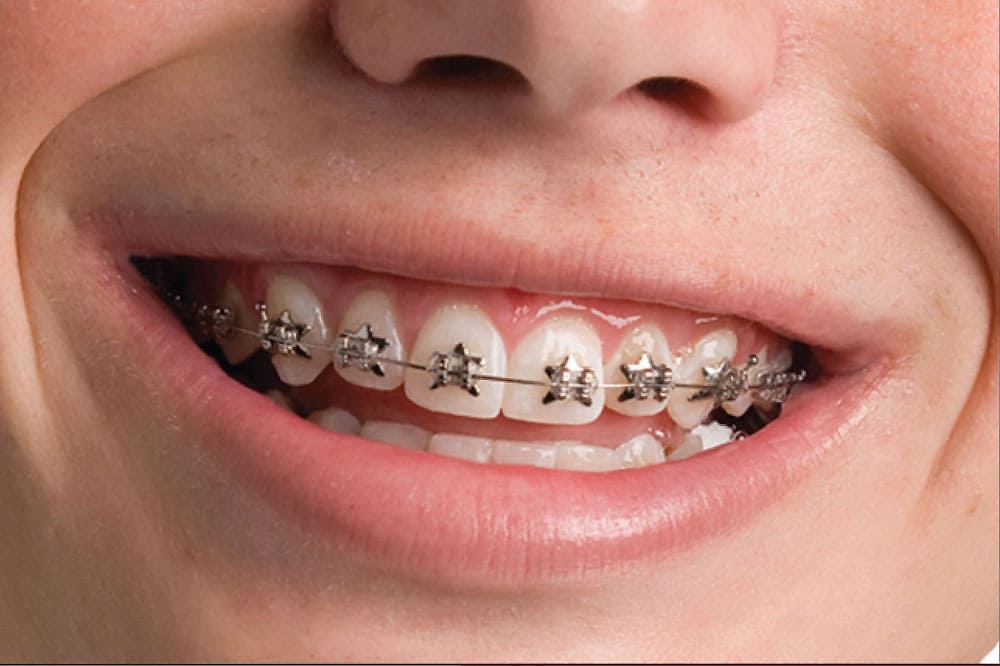When considering orthodontic care, one of the most common questions patients ask is, "Do I really need braces?" Braces are often seen as a solution for crooked teeth or misaligned bites, but they can also address a variety of dental issues. The need for Dental Braces depends on several factors, including the severity of misalignment, bite issues, and overall oral health. Understanding your unique needs and treatment options can help you make an informed decision about whether braces are right for you.
Signs You May Need Braces:
There are several signs that could indicate that braces are necessary for your dental health. These issues may affect your bite, appearance, and comfort.
- Crooked or crowded teeth: Teeth that overlap or are misaligned can lead to difficulty cleaning and increased risk of cavities
- Overbite or underbite: A bite where the upper and lower teeth don’t align properly, leading to wear and tear on teeth
- Jaw discomfort or pain: Misalignment can cause strain on your jaw, leading to pain or temporomandibular joint (TMJ) disorder
- Difficulty chewing or speaking: Teeth that are misaligned may affect your ability to chew food properly or speak clearly
- Gaps between teeth: Large gaps can cause aesthetic concerns and might affect oral function
If you experience any of these issues, consulting with an orthodontist is a good first step toward assessing whether braces are necessary.
Types of Issues Braces Can Correct:
Braces are not just for cosmetic purposes—they can help correct a wide range of dental problems that affect the function and health of your teeth.
- Malocclusion: The misalignment of the upper and lower teeth can cause problems with chewing and speaking
- Crossbite: A condition where some of your upper teeth sit inside your lower teeth, which can lead to gum issues
- Open bite: When the upper and lower teeth do not meet properly when biting down, causing difficulty with chewing
- Spacing issues: Teeth that are too far apart can be prone to decay and can make chewing harder
- Overcrowding: When teeth don’t have enough space to come in properly, braces can help create more space
Each of these conditions can negatively impact both your oral function and appearance, making braces a helpful treatment option.
Benefits of Getting Braces:
For those wondering if they really need braces, it's important to consider the potential benefits braces can provide. While the aesthetic improvement is a clear benefit, there are numerous other advantages to orthodontic treatment.
- Improved oral health: Straight teeth are easier to clean, which reduces the risk of cavities, gum disease, and tooth decay
- Better bite function: Braces can correct your bite, making chewing, speaking, and swallowing more comfortable
- Long-term comfort: Treating bite problems early can prevent jaw pain or discomfort associated with misalignment
- Enhanced confidence: A straighter smile can boost your self-esteem and enhance your overall appearance
- Prevention of future dental issues: Correcting alignment issues now can prevent more severe dental problems in the future
Braces not only offer cosmetic benefits but also promote better long-term oral health and function.
What Happens If You Don’t Get Braces?
If you decide that braces are not for you, it’s important to understand the potential consequences of leaving misalignment or bite issues untreated. Over time, these problems could lead to more serious dental complications.
- Increased risk of tooth decay: Misaligned teeth are harder to clean and maintain, making it easier for plaque and bacteria to build up
- Worsening jaw pain: A poor bite can lead to jaw discomfort or even temporomandibular joint (TMJ) disorder
- Speech difficulties: Teeth that aren’t aligned properly can affect pronunciation and speech clarity
- Wear and tear on teeth: Misaligned teeth can cause uneven wear, leading to tooth erosion or damage
- Aesthetic concerns: Crooked teeth may impact your self-confidence or cause social discomfort
Choosing to leave orthodontic issues untreated may lead to more complicated and costly treatments later on, making it a good idea to weigh the long-term benefits of braces.
What to Expect If You Choose Braces?
If you decide that Dental Braces treatment are the right option for you, understanding the process can help set your expectations for treatment. Braces require a commitment of time, effort, and care.
- Initial consultation: Your orthodontist will assess your dental structure, take X-rays, and discuss treatment options
- Braces placement: This involves attaching brackets and wires to your teeth, which is a quick, painless procedure
- Adjustment visits: You’ll visit the orthodontist every few weeks for adjustments to ensure your teeth are moving as planned
- Oral hygiene routine: It’s important to take extra care in cleaning your teeth and braces to prevent plaque buildup and cavities
- Treatment duration: Depending on your case, braces treatment typically lasts between 12 and 36 months
Throughout the process, your orthodontist will guide you and make adjustments as needed to ensure the best possible outcome.
Conclusion:
So, do you really need braces? If you have crooked teeth, bite issues, or other dental concerns that impact your health or appearance, braces may be the solution you need. With the ability to correct a variety of dental issues, braces offer both aesthetic and functional benefits, helping you achieve a healthier, more confident smile. To determine whether braces are right for you, consult with an orthodontist who can evaluate your specific situation and guide you through the treatment process.





Comments